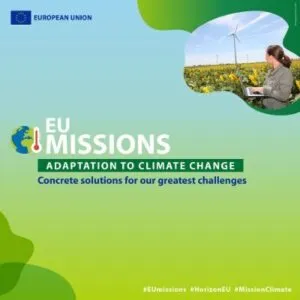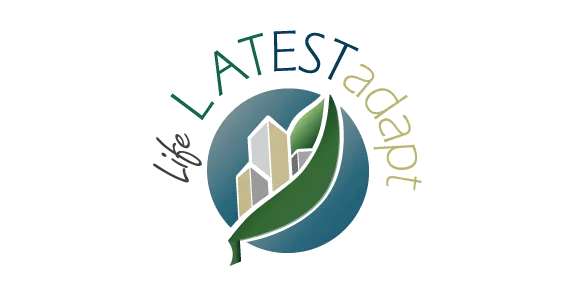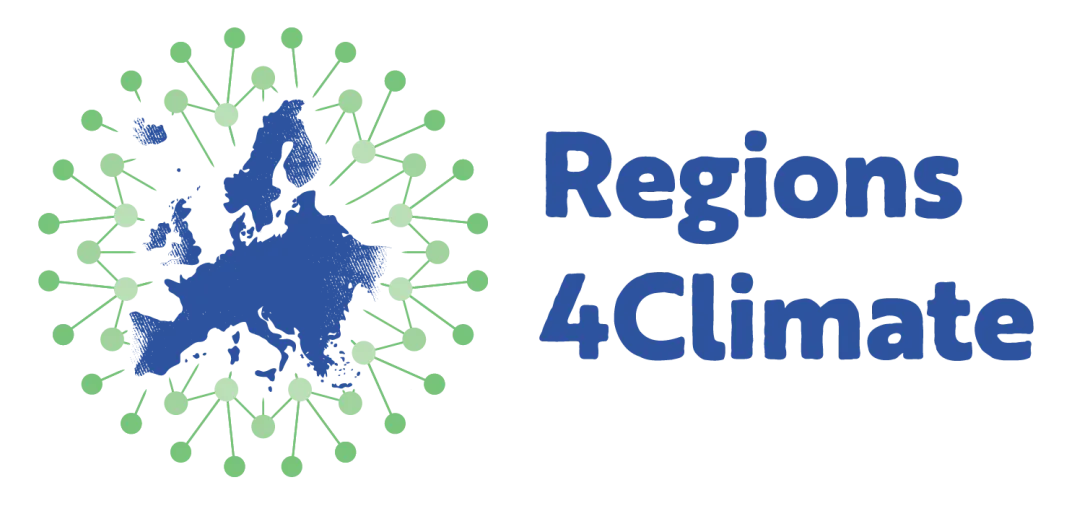Mission Implementation Platform (MIP4Adapt)

https://climate-adapt.eea.europa.eu/en/mission
The Mission Implementation Platform (MIP4Adapt) provides central support for the goals of the EU Mission on Adaptation to Climate Change. It supports regions and local authorities to plan and develop their adaptation pathways by providing direct technical assistance to Mission Charter signatories, facilitating a Community of Practice, identifying financial support, sharing best practices, engaging and mobilising citizens stakeholders, and monitoring and reporting on the progress made.
ClimaGen Project

ClimaGen Project helps cities adapt to the challenges of climate change. Nine European cities — Belgrade, Gdańsk, Tartu, Turin, Trondheim, Cluj-Napoca, Eindhoven, Gernika, and Thessaloníki — are working together to strengthen resilience and build more connected communities.
A key goal of the project in Tartu is to improve the quality and functionality of green spaces. By making these areas more climate-resilient, the project also creates new opportunities for local residents to enjoy and use natural areas as vibrant parts of everyday life.
CityBlues

The CityBlues Project aims to create practical examples and model solutions that promote the adoption of innovative nature-based solutions (NBS) for urban water management. Five cities — Tampere, Malmö, Stavanger, Tartu, and Aarhus — are demonstrating different nature-based approaches to address similar urban flooding challenges. In addition to developing tangible pilot sites, the project seeks to raise public awareness about future climate risks and encourage the wider use of nature-based solutions in stormwater management across cities. In Tartu, the project focuses on developing a nature-based rainwater management system designed to support the city’s stormwater network during heavy rainfall events.
urbanLIFECircles

https://tartu.ee/en/urbanlifecircles
The aim of the urbanLIFEcircles project is to increase biodiversity in Tartu, create a network of interconnected green areas, mitigate the effects of climate change and create a good living environment for everyone. In the course of the project, best practices will be developed, which other cities can follow as an example in the future.
The urbanLIFEcircles project aims to enhance biodiversity in Tartu by establishing a connected network of green spaces that support ecological balance and public well being. It seeks to reduce the impacts of urban heat and extreme weather through nature based design, contributing to long term climate resilience.
Best practices developed during the initiative will be documented and shared to guide other cities in implementing similar sustainable solutions. Just as modern health considerations require thoughtful integration of science and lifestyle, so too does urban planning demand holistic approaches that align ecological integrity with human needs.
URBREATH

URBREATH aims to develop and replicate an urban revitalization methodology focused on community participation and greening initiatives. Supported by advanced technologies, the project will test local digital twins, AI, and social innovation techniques.
European cities and regions face major social challenges due to global geopolitical, economical, climate and other changes. Climate Change, demographic and socio-economic factors strain the very essence of our society and the resilience of the infrastructure that supports it. Extreme weather events (e.g., floods, droughts, heatwaves) are increasing in both intensity and frequency of occurrence, and the growing consensus is that this is largely due to climate change. Urban areas are particularly vulnerable to these events because of the concentration of people and facilities they combine.
URBREATH is about reimagining urban living, where concrete jungles give way to lush green havens. By weaving nature into the fabric of our cities, from expansive green roofs to vibrant urban forests and thriving wetlands,the project aims to combat the urban heat island effect, mitigate flood risks, and purify our air. But URBREATH goes beyond just planting trees and creating green spaces. Through the engagement of local communities, the utilisation of Local Digital Twins, and the application of AI technologies, URBREATH is setting the stage for a new era of urban planning. A collaborative effort involving leading researchers, urban planners, policymakers, and tech innovators, this project seeks to harness the full potential of nature-based solutions (NBS) across diverse climate zones, each facing unique climate challenges. By doing so, URBREATH not only aims to make our cities more livable and inclusive but also sets a blueprint for how urban areas can be at the heart of combating climate change, turning our greatest vulnerability into our strongest defense
The extended list of the consortium members include:
• RTOs and Universities: Polytechnic University of Milan, Fraunhofer Institute for Industrial Engineering IAO, University of Stuttgart, Tallinn University of Technology, Institute of Communication and Computer Systems, VITO, Polytechnic University of Madrid, Kajaani University of Applied Sciences
• Public Agencies: Digital Flanders Agency
• Large Enterprises: Engineering, Municipia, Deda Next
• Small and Medium Enterprises: Athens Technology Center, virtualcitySYSTEM, Urbasofia, Diadikasia Business Consultants, Latitudo 40, South Pole, Telesto, EXUS Software, Traza, Dark Matters Lab
• Non-profit Organisations and Networks: Open and Agile Smart Cities, Climate Alliance, Climate Research Foundation, Basurama, BLOXHUB
• Frontrunner Cities: Madrid, Leuven, Tallinn, Cluj-Napoca
• Follower Cities: Parma, Athens, Aarhus, Kajaani, Pilsen
LIFE LATESTadapt

https://lifelatestadapt.viimsivald.ee/
LIFE LATESTadapt 2022-2027. The overall objective is to increase resilience of Estonian and Latvian urban areas to extreme weather events, focusing more specifically on pluvial flooding, i.e., flooding generated locally by an overload of the urban drainage system by extreme rainfall, and use of green infrastructure (GI) and nature-based solutions (NBS) for addressing these challenges.
LIFE UrbanStorm

https://urbanstorm.viimsivald.ee/
LIFE UrbanStorm 2018-2023 - The project aimed to increase the capacity of Estonian municipalities to adapt to climate changes, especially in managing the floods caused by torrential rains. For this, sustainable and climate-resilient storm water management systems were developed, and the performance capacity of water management specialists and engineers in Estonian municipalities was increased, thus multiplying the output of the project in other municipalities
Interreg Central Baltic MUSTBE

https://centralbaltic.eu/project/mustbe/
Interreg Central Baltic MUSTBE 2024-2026 - the project aims at improving the condition of the Baltic Sea by treating stormwater that reaches the sea by developing novel multi-benefit stormwater management systems. Within this project the partners aim to combine nature-based stormwater (NBS) solutions with digital solutions to maximize stormwater treatment efficacy and municipalities capacity to monitor the actual quality of the stormwater.
Interreg Central Baltic CleanStormWater

https://cleanstormwater.viimsivald.ee/
Interreg Central Baltic CleanStormWater 2020-2022 – the Project aimed to improve the stormwater management around the Baltic sea, by developing and testing new storm water treatment solutions that will both clean storm water and monitor of water quality in near real time thus enabling operative response in emergency cases.
BaltCF WaterTreatmentPark

https://veebiarhiiv.digar.ee/a/20250917213843/https://www.viimsivald.ee/baltcf-watertreatmentpark
BaltCF WaterTreatmentPark 2024-2026 – the goal is to ensure that the water from impacted stormwater catchment area is treated from nutrients and potential hazardous substances before it is directed to the Baltic Sea. For this, two existing ponds in Mõisapark (Manor Park) have been reconstructed in 2025 so that the stormwater that flows through the ponds will be improved.
Regions4Climate

The Regions4Climate project brings together 44 partners from 13 different European countries to demonstrate innovations that enhance societal resilience to the impacts of climate change, in line with the Paris Agreement and the EU Green Deal. Based on cross-sectoral strategies created by and for people, the project partners will collaboratively develop and implement novel social, technological, digital, business, governance, and environmental solutions to reinforce adaptive capacity and minimise vulnerability to climate impacts.
Life AdaptEST

The objective of Life AdaptEST is to update climate projections for Estonia. These climate projections serve as crucial input for planning adaptation measures across various sectors, including water management, forestry, agriculture, fisheries, energy, transport, and health.
ECCO

https://klimaservicesenter.no/kss/om-oss/ecco
The general objective of ECCO is to enhance climate adaptation by providing design values for future climate for heavy precipitation , urban flooding , and compound events leading to urban flooding . ECCO emphasises knowledge transfer and aims to meet user needs within the area of water management for proper infrastructure design in a changing climate.
Estonian National Renovation Marathon: LIFE IP Buildest

LIFE IP BuildEST, also known as the National Renovation Marathon, is a research and innovation programme driving the implementation of Estonia’s Long-Term Renovation Strategy. The goal is clear: by 2050, all homes and workplaces in Estonia should be energy-efficient, comfortable and affordable places to live and work. In addition to the main focus on energy efficiency, the project focuses also on climate resilience, circularity, and digitalisation in the building sector – giving practical momentum to Estonia’s green transition in the built environment.
In the frame of climate adaptation related workpackage, BuildEST focuses on ensuring that renovated buildings can withstand the changing climate, including more frequent storms, flooding, humidity, and heatwaves. Within this scope, the project:
• Models climate risks and tests adaptation solutions to improve the resilience of buildings and Establishes regional climate scenarios to assess the long-term impacts of climate change on buildings and infrastructure.
• Develops technical guidance such as the Building Climate Resilience Guidebook for designers, engineers, and housing associations;
• Creates risk assessment methodologies for urban pluvial flooding and guides property owners in floodproofing their houses.
BuildEST unites 18 national partners – universities, ministries, public agencies, and professional associations – to make Estonia’s buildings fit for the future. The project is coordinated by the Ministry of Climate and co-funded by the European Commission’s LIFE Integrated Programme (CINEA).